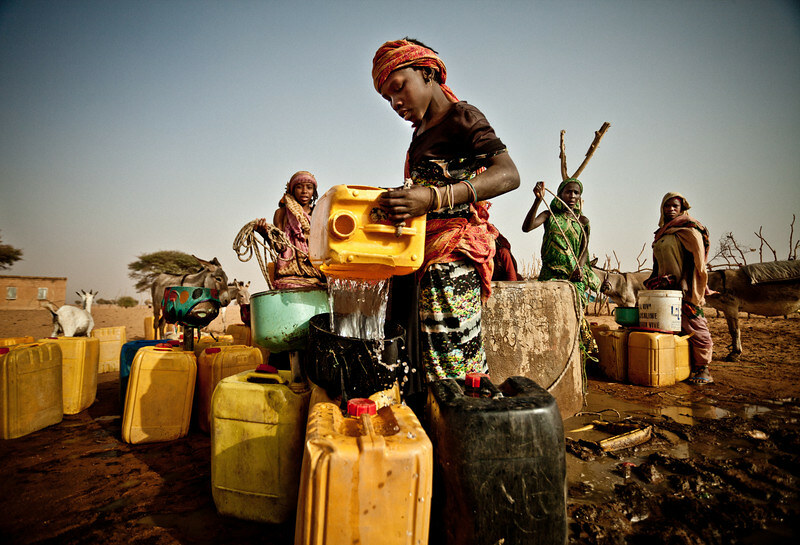Karen Joe and Rachel Fisher Ingraham – the WASH sub-group co-facilitators for the Gender and COVID-19 Working Group – reflect on the intersections between water and COVID-19 for World Water Day.
The COVID-19 pandemic response relies on clean water to help mitigate the spread of the disease, yet the World Health Organization estimates that globally, 2.2 billion people do not have access to safely managed drinking water services. This means billions of people are simultaneously struggling to cope with a pandemic and a lack of access to readily available and clean, uncontaminated water.
Women and girls bear a disproportionate responsibility for managing water collection and many water-related tasks and in areas of sub-Saharan Africa, spend upwards of 40 billion hours pers year engaged in water collection. Pursuing an education, income generating activities, or even leisure time become limited options for countless women and girls who are forced into this gendered, socially constructed role.
The COVID-19 pandemic has further increased the demands on women and girls, exacerbating the gender inequalities associated with water collection and resource management. At the same time, it has placed women and girls at an increased risk of exposure to gender-based violence and sexual harassment, exposure to COVID-19, and exposure to other health challenges as a result of water scarcity.
The global pandemic is compounding the burden on women and girls as:
- Already limited Water access, Sanitation and Hygiene (WASH) resources, especially soap and water, are being reallocated. Women and girls are often the last in a household to have access to water supplies.
- Restricted water availability or increased water costs can lead to an inability to safely and effectively manage menstruation, especially for those living in displacement camps, informal settlements, and lesser-resourced communities.
- Restricted water availability exacerbates challenges for people with limited mobility who may not be able to queue for water in displacement camps nor travel long distances to access clean drinking water.
- Water scarcity or lack of financial resources makes women and girls more vulnerable to sexual exploitation and abuse, as they are frequently coerced into trading sex for water.
- Social distancing requirements increase vulnerability to gender-based violence when collecting water or cleaning toilets.
- Unsafe water can increase the risk of infection for menstruators and pregnant women as well as increase the potential for disease outbreaks.
- The physical demands of collecting water, while also managing the threats of gender-based violence, significantly impact women and girls’ mental health.
- Female patients in quarantine or hospitalized with COVID-19 often lack access to both WASH and menstrual hygiene supplies.
Our global imperative on this World Water Day is to simultaneously value women and value water because only then can we truly achieve transformative gender policies rooted in human rights while also guaranteeing the right to clean, safe water.
Notes
Read more!
Fisher Ingraham, R. and Joe, K. (2021). Gender, COVID-19 and water. The Gender and COVID-19 Working Group.
Sharma, B.B., Logie, C., Fisher Ingraham, R., and Joe, K. (2021). Gender, COVID-19, and Menstrual Hygiene Management. The Gender and COVID-19 Working Group.
Image credit: “Sahel Food Crisis 2012: Drawing water from a well in the community of Natriguel, Mauritania” by Oxfam International is licensed under CC BY-NC-ND 2.0






